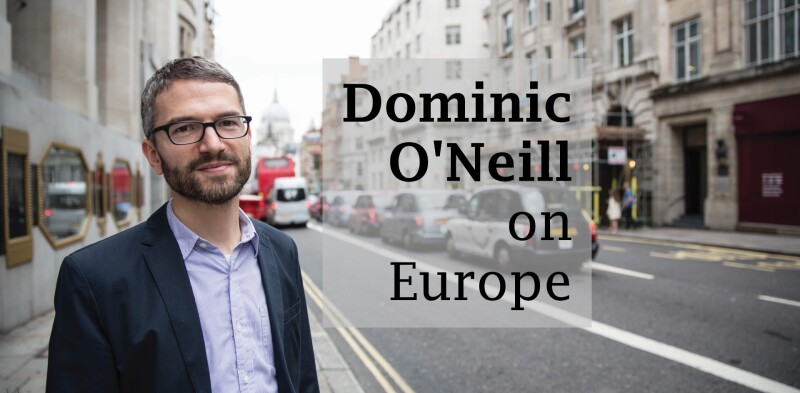
One of Mario Draghi’s last acts as Italian prime minister, before Italy’s general election on September 25, was to prepare a new multi-billion-euro programme of state-guaranteed bank loans.
Like similar schemes across Europe during Covid-19, it could go a long way to protecting banks from a new wave of loan losses – in this case from a combination of the energy crisis, rising eurozone interest rates, and now the likely formation of a government by Brothers of Italy leader Giorgia Meloni.
Investors’ main concern for Italian banks will be the danger of a new non-performing loans crisis. The 2008 crash and eurozone crisis left the banks with a €350 billion bad-debt mountain by the mid 2010s, mostly to small and medium-sized enterprises, thanks to widespread forbearance and obstacles in the legal system.
But when lockdowns caused the economy to plummet in 2020, a €750 billion bank liquidity programme helped prevent another NPL build up. That programme included €400 billion in state guarantees for commercial bank credits to businesses through Sace, the export arm of state development bank CDP.
Draghi’s new package of Sace guarantees will run alongside a similar programme in Germany, spearheaded by its state development bank KfW.
Contingencies
This time, rather than lockdowns, lending will be to companies facing liquidity shortages due to the energy crisis. The interest rate on such guaranteed lending will be capped at the level of Italian government bonds, but the level of capital banks must set aside for such loans will also be minimal, thanks to the guarantee.
Of course, all this is contingent on Meloni’s Brothers of Italy party – and its coalition partners – continuing with important parts of Draghi’s economic policy.

The hope among investors, including bank investors, is that Italy’s new far-right government will primarily occupy itself with domestic social policy and immigration and will leave financial matters to technocrats.
Meloni’s nationalist rhetoric, which has occasionally railed against French influence, might make French corporate takeovers less likely in Italy, including a mooted Crédit Agricole-Banco BPM takeover.
Yet the lack of success in the election exit polls of Matteo Salvini’s Northern League has reinforced hopes for a more practical stance on the fiscal front and for relations with the European Commission. Salvini had called for a more dramatic ramp-up in spending.
Spreads
In the banking sector, the main focus will now be on the choice of finance minister, as
Meloni puts her government together in October. Higher BTP-Bund spreads hurt Italian banks – even before the wider economic impact is felt – through their funding costs and government bond holdings, about 50% of which is in BTPs, according to Citi.
BTP-Bund spreads have already more than doubled over the past year, due to expectations of rising interest rates and because of political fears.
In 2018, the last time a populist coalition came to power in Italy, spreads between 10-year Italian and German government bonds more than doubled – passing 300 basis points during tense negotiations with the EU over the budget deficit that November – even without any increase in eurozone interest rates.
Investors appear almost oblivious to Italian banks’ pleading about lower risks and the benefits to them of rising rates – even though there is also a deposit surplus
This time, Brussels can dangle a large carrot before the country in the form of a €200 billion EU-funded Covid-19 recovery fund, conditional on economic reforms – and Draghi’s government has laid the foundations for dispersing that cash.
There is also a stick: if Italy is deemed to break EU fiscal rules, it could be locked out of European Central Bank purchases of bonds as part of the ECB’s new anti-fragmentation policy.
The average NPL ratio at Italian banks is now less than 5% – again, arguably in part thanks to Draghi, albeit from his time at the ECB. The 2014 creation of a single supervisory authority resulted in a ramp-up in pressure on banks to clean up their balance sheets.
But investors appear almost oblivious to Italian banks’ pleading about lower risks and the benefits to them of rising rates – even though there is also a deposit surplus. The sector, after all, is still trading at a 40% discount to book value.
Holidays
As consumers and small businesses come under more pressure, and banks’ interest margins rise, could the Meloni’s government – even if it keeps to the fiscal rules – subject Italian banks to a windfall tax of the kind Spain imposed this summer? Or, perhaps, it could launch the sort of blanket mortgage holiday of the kind that Poland has designed this year?
Such policies may be less likely in Italy because its banks are less profitable than lenders in Poland or even Spain. But as the political temperature has risen in the country alongside an inflation crisis, it is perhaps no surprise that big Italian banks have led the way in western Europe by voluntarily launching repayment holidays.
In UniCredit’s case, it announced repayment holidays in early September of up to a year to its mortgage and credit-card borrowers, as well as to business customers who haven’t benefited from existing state-backed loan schemes.
At an investor conference in London in September, UniCredit chief executive Andrea Orcel admitted the holidays will have an impact on the net present value of the impacted loans. Apart from the reputational insulation they might provide the bank, he argued, there was a financial benefit too, because they mean the worst-hit borrowers are less likely to default.
